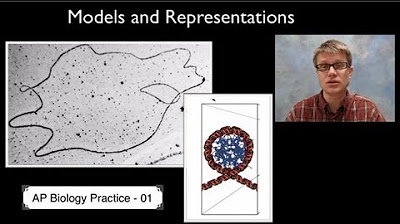SCIENTIFIC ATTITUDES
Summary
TLDRThe video highlights the essential scientific attitudes that contribute to success in the field of science. These include curiosity, objectivity, critical thinking, open-mindedness, inventiveness, risk-taking, respect for others' creations, humility, and responsibility. Scientists believe everything happens for a reason, ask questions, and rely on evidence to form conclusions. They remain open to others' ideas, respect intellectual honesty, and admit their mistakes. Ultimately, these traits shape effective scientific inquiry and contribute to personal and professional growth in science.
Takeaways
- 😀 Scientific attitudes are crucial for success in the field of science, especially in developing key personality traits.
- 😀 Scientists believe that everything happens for a reason, seeking logical explanations for observed phenomena.
- 😀 Curiosity drives scientists to ask questions and seek answers, especially when things don't follow expected patterns.
- 😀 Objectivity is key in science, with scientists recording observations and conclusions without letting emotions influence their work.
- 😀 Critical thinking is essential, as scientists test all possible methods and ask 'how' and 'why' questions to arrive at conclusions.
- 😀 Open-mindedness allows scientists to respect and listen to others' ideas and feedback without interrupting.
- 😀 Inventiveness is important for generating new and original ideas, such as students building robots or mixing colors creatively.
- 😀 Scientists are risk-takers, willing to try new ideas even at the risk of failure or criticism.
- 😀 Intellectual honesty and respect for others' creations are fundamental, ensuring truthful reporting of observations to avoid harm.
- 😀 Humility is important in science, as scientists admit their errors and acknowledge better ideas from others.
- 😀 Responsibility in science involves actively participating in tasks and performing duties without constant reminders from others.
Q & A
Why are scientific attitudes important for success in the field of science?
-Scientific attitudes are crucial because they shape the way scientists approach problems, make observations, and develop solutions. A strong scientific attitude fosters curiosity, objectivity, critical thinking, and openness, which are essential for making accurate discoveries and advancements.
What role does curiosity play in a scientist's work?
-Curiosity drives scientists to ask questions and seek answers. It pushes them to investigate things that do not fit known patterns, such as wondering how bridges support heavy weights or what causes rain. Curiosity is the foundation of scientific discovery.
How does objectivity affect a scientist's work?
-Objectivity ensures that a scientist's emotions or personal biases do not interfere with their observations and conclusions. It allows scientists to record and analyze data accurately and fairly, leading to reliable and unbiased results.
What is the importance of critical thinking in science?
-Critical thinking enables scientists to base their conclusions on evidence rather than assumptions. They test various methods, ask deeper questions (such as how and why), and evaluate the information thoroughly before arriving at conclusions.
Why is open-mindedness a valuable trait for scientists?
-Open-mindedness allows scientists to listen to and respect the ideas of others. It encourages collaboration and the exchange of ideas without premature judgment, which can lead to more innovative solutions and discoveries.
How does inventiveness contribute to scientific progress?
-Inventiveness in science involves generating new, original ideas or solutions to problems. It helps scientists create innovative tools, experiments, and concepts, such as developing robots or new methods of enhancing scientific work.
What does it mean for scientists to be risk-takers?
-Risk-taking refers to a scientist's willingness to try new, untested ideas or approaches, even if there is a chance of failure or criticism. This mindset encourages innovation and progress, despite the possibility of setbacks.
Why is intellectual honesty important in science?
-Intellectual honesty ensures that scientists report their observations truthfully, without exaggeration or fabrication. This integrity builds trust in their findings and prevents others from being misled or harmed.
How does humility benefit a scientist's work?
-Humility allows scientists to admit their mistakes and acknowledge when others have better ideas. It promotes continuous learning and improvement, ensuring that they remain open to new insights and better solutions.
How does responsibility play a role in scientific success?
-Responsibility means actively participating in tasks, fulfilling duties, and being accountable for one's actions. In science, this involves staying focused, working diligently, and taking ownership of one's contributions to research or projects.
Outlines

This section is available to paid users only. Please upgrade to access this part.
Upgrade NowMindmap

This section is available to paid users only. Please upgrade to access this part.
Upgrade NowKeywords

This section is available to paid users only. Please upgrade to access this part.
Upgrade NowHighlights

This section is available to paid users only. Please upgrade to access this part.
Upgrade NowTranscripts

This section is available to paid users only. Please upgrade to access this part.
Upgrade NowBrowse More Related Video

Fisika Kelas 10 | Understanding Scientific Thinking in Physic

AP Biology Science Practice 1: Models and Representations

Understanding Consumer Behavior and Theory of Reason Action

HAKIKAT IPA DAN PEMBELAJARAN IPA

The Scientific Revolution: Crash Course History of Science #12

Gak Asal Percaya | #BelajarTauhid | Eps 1 | Film Pendek #SCIFI Indonesia
5.0 / 5 (0 votes)